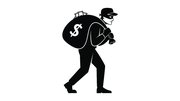Blog
5 tips for entrepreneurial success
October 18, 2013 by Terrina Rishel — CEO, ATM Authority, LLC
"What's the formula for success as an entrepreneur?" Of course, the complete answer depends on the particular situation, however, I believe there are five key components that have consistently served as the basis for all of my ventures.
Develop a business case that is customer-centric
Some will read this and think it sounds pretty obvious. However, many businesses fail because the basis for their products and services is what they want to offer, rather than what the customer wants or needs.
Failed restaurants are a perfect example of how not even the best location or most beautiful ambiance can be successful if the menu is horrible.
Have you ever watched "Shark Tank" on TV? The "sharks" know almost immediately if a business idea is a good one or not, because they automatically ask themselves if the idea being pitched will satisfy a market.
A few years ago, I was asked to work with someone who wanted help launching and growing her business. Within five minutes of speaking to her I knew she would fail. The red flags were evident; she felt her customers were ignorant and that she knew better. Which brings me to my next point …
Respect and value your customer
Many business leaders ignore valuable feedback and behave as though their customers need to change.
I learned at a very young age while working as a waitress that if my customer wanted a custom order — give it to them!
Demonstrate you care and are willing to adjust your offering or processes to accommodate them, and you'll be rewarded with a loyal relationship.
I frequently hear people discussing "customer engagement" as a critical strategy. I think of it more as the netresultof a customer-centric mindset — not a company initiative that requires a complex strategy.
Don't be a copycat
When starting a new venture, it's logical to evaluate the players who are currently in that market. However, too many entrepreneurs simply see a successful company and try to imitate it.
If you are trying to enter into a crowded marketplace and can't add value beyond what the existing players are currently providing, you may want to reconsider the venture.
Even in an environment where there seem to be many competitors, by knowing where the holes are, you can carve out a place at the table.
Sadly, many organizations get business by default, because customers feel their options are limited. Differentiate yourself by doing due diligence and starting with what is not working, instead of copying what is working.
Know more than you need to know
It's important to be a true resource, not just share the bare minimum.
People often comment on the number of questions I ask. Placing myself in the customer's shoes is critical for adding value beyond the obvious.
Uncovering additional information, demonstrates to customers and prospects that I'm looking out for their best interest.
Being viewed as an expert and staying top-of-mind with your market is the fastest way to ensure that you are included when a proposal is needed.
Going the extra mile to know more than you need to, will ultimately result in greater market share and revenue.
Be authentic — even if it means walking away
Having a strong moral compass and being authentic about what you propose, is always the right thing to do.
Many organizations give lip-service to creating a "win-win" culture; you will gain greater credibility and customer engagement by being willing to walk away from a situation that is not mutually beneficial.
Respectfully declining an inappropriate opportunity demonstrates a commitment to being steadfast in your principles, and will ultimately pay off in referrals by trusted customers.
As a result of many customer-facing career opportunities, I have learned that the real formula to success boils down to a common theme: The customer is all that matters!
It's really pretty simple: Find a customer to make happy — and do it!
Every time I answer the question about a winning entrepreneurial formula, I'm certain to get a bewildered look. It may not be a complex matrix, or a 100-slide PowerPoint deck, but it's the basis for a real formula!
Read more about distributors, ISOs and IADs.
 ChatGPT
ChatGPT Grok
Grok Perplexity
Perplexity Claude
Claude












